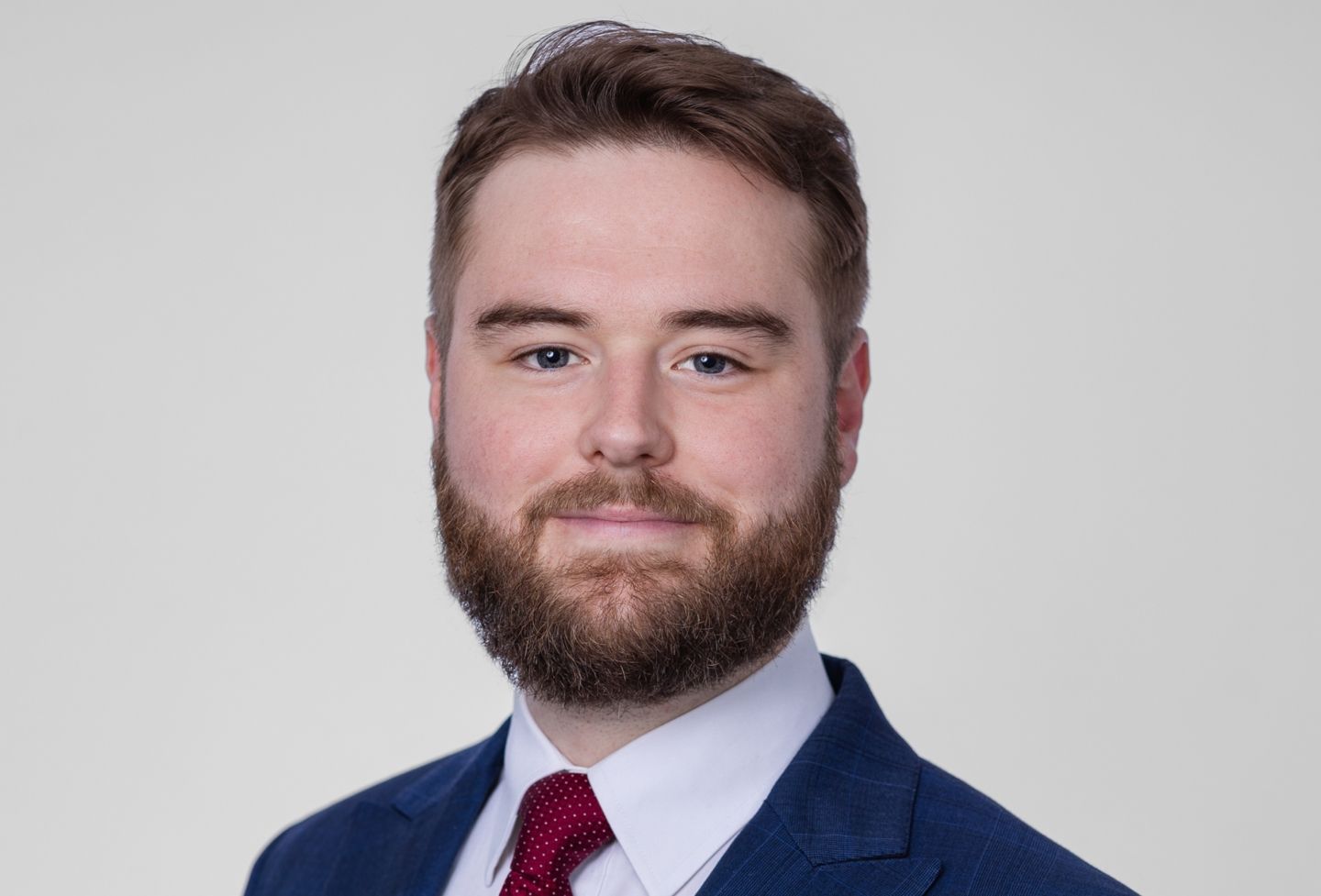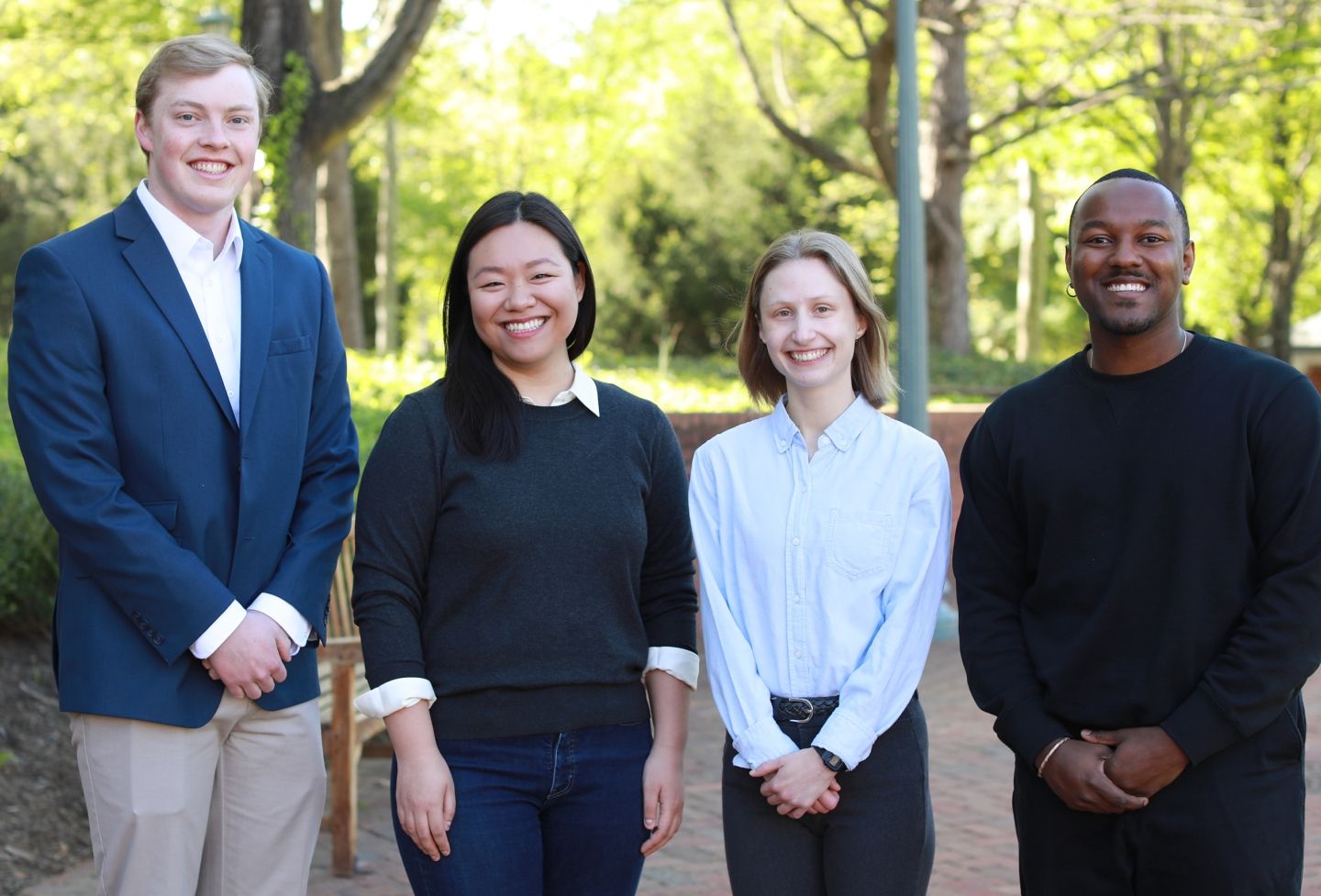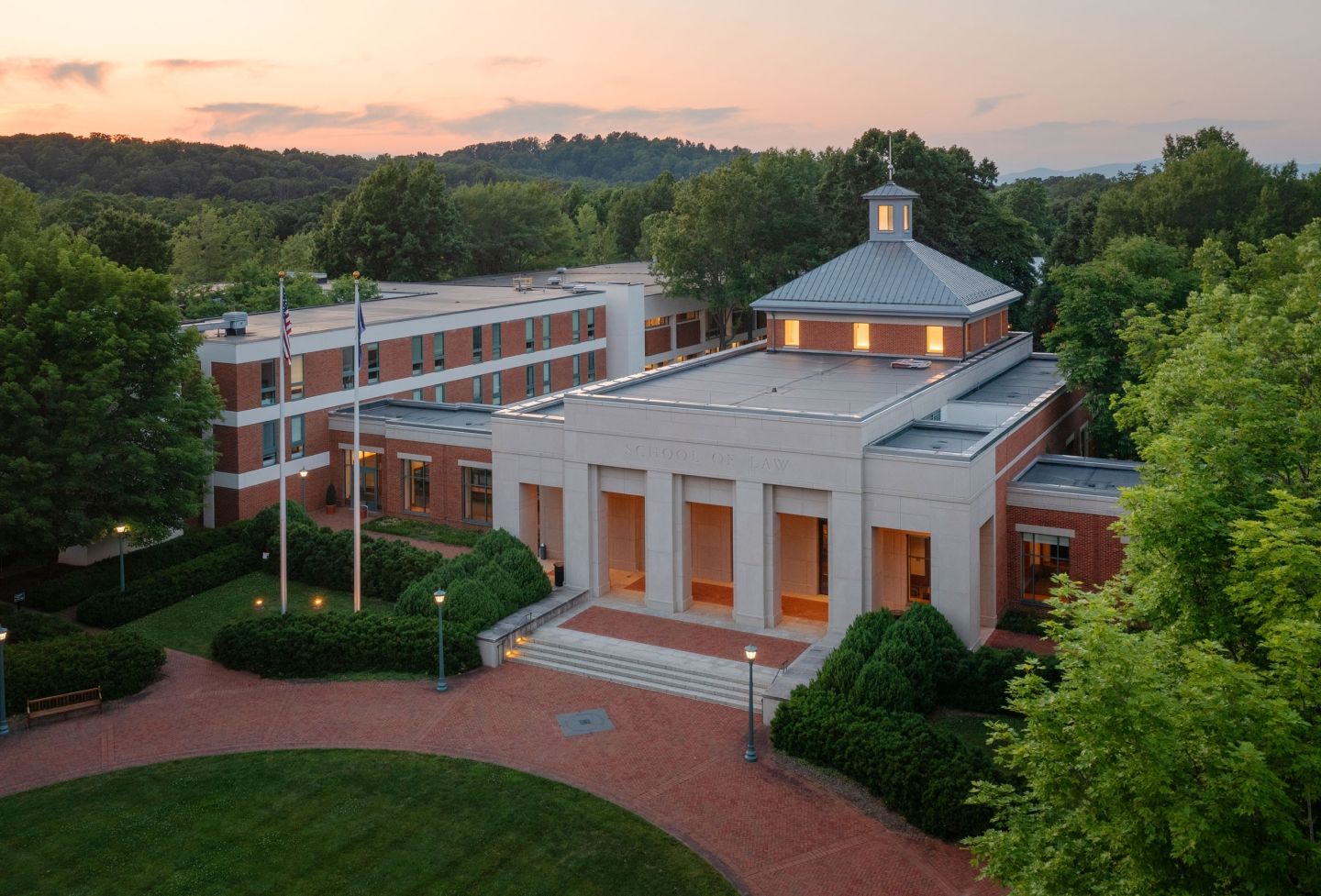Students, Law Veterans Debate Potential War on Iraq


The national debate over taking action against Iraq played out among students at the Law School Jan. 28 on the eve of the State of the Union address, as members of the Virginia Law Veterans deliberated a potential war and then opened the discussion to the audience.
"What do we think? Are we justified in taking action in Iraq?" asked second-year Law student Bryan Rhode, a former Marine Corps officer favoring the war. "I think there are a number of moral and strategic reasons for doing so."
"Since September 11, we can no longer afford to be reactive — we have to be proactive," he added, noting that military action in Iraq is consistent with the new paradigm facing U.S. administrative officials battling a war on terror.
Rhode asserted that forcing a regime change in Iraq could be the first step in reforming a region "marked by hatred" for the United States.
"What really threatens us is not so much the evil dictators of the world … what really threatens us is the undeterrables" — those willing to die for their hatred of the United States. "The only means of their people to find empowerment is to cause destruction," he said.
"We need to make sure we have as much international support as we can get" in a potential conflict, he said. He added that the United States should alter its stance against nation-building in order to reform Iraq, and adequately address the Israeli-Palestinian conflict that divides the region.
"We must be willing, again, to lead the world," he said. "I think if we decide, we can once again change the world for the better."
Second-year Law student David Glazier, a 21-year veteran of the Navy who retired as a commander to attend law school, argued against attacking Iraq.
"It's very important to consider who the people are who are making this policy," he said, noting that Defense Secretary Donald Rumsfeld, Vice President Dick Cheney, and Deputy Secretary of State Richard Armitage are all what he called "cold warriors," used to fighting communism by any means possible.
"These are folks that take a very short-term perspective," Glazier said. Their traditional policy of "my enemy's enemy is my friend" in the Afghan war during the 1980s laid the foundation for the Taliban and Al Qaeda networks, he added. He suggested there was evidence that the encampments at Tora Bora were even paid for by Americans years earlier.
Invading Iraq could also mean pervasive ongoing conflict in the region in the future. "I think we fail to see that Iraq is very much like Yugoslavia," he said — a loose collection of ethnic groups with competing goals. He said that whether you like Saddam Hussein or not, he's effectively held these groups together. "If we oust Saddam, what does Iraq look like in five to 10 years? … Is it in fact a recipe for peace or a recipe for further conflict?"
He asserted that the United States does not have all the tactical advantages that it had in the Gulf War — this time there's no free fuel and fewer foreign military bases offering support. Furthermore, the war is more likely to carry into populated cities rather than on desert plains, likely increasing civilian casualties.
In Afghanistan during the war on terror, "military commanders were not familiar enough with the geopolitics of the area" to capture or kill Osama bin Laden and other Al Qaeda members. "Do you trust them? I don't think they're up to the job."
Glazier said a war with Iraq would be more painful than people think and would further populate terrorist camps with fresh dissidents and break down sympathy for the United States.
"Terrorism is how the have-nots confront the militarily powerful," he said. "The net result of war with Iraq is going to be significant sympathy in the Middle East for terror groups."
With new recruits and revived reasons for hatred, terrorists may find it even easier to put a nuclear weapon on a ship and detonate it in a U.S. harbor, he said. Countries like Pakistan, which already has nuclear weapons, could turn against the United States and supply the terrorists.
"I would argue that going into Iraq would cause far more problems than it would solve," he concluded.
One student in the audience disagreed with Glazier's assessment of Hussein as a stabilizing force in Iraq that can be controlled by sanctions. "Is it good policy for the world to just let a regime like his fester?" he asked. "I think there's a case to be made that we have a moral imperative to intervene."
Glazier responded that if Hussein is such a threat, "why don't the countries in the region perceive it?"
"If the world wants to overthrow the regime … then the United Nations ought to take the lead," he added.
Rhode reacted to questions concerning U.S. leadership as well. "There definitely is a precedent for taking a leadership role" in past conflicts, he said. "I believe the status quo [in Iraq] is unacceptable."
Glazier argued that when dealing with a leader who has a "tenuous hold on power," we should present him with a "win-win" situation rather than continual demands. Because we didn't overthrow his regime in the Gulf War, when the United States had significant international support, "we sort of have to live with the guy."
"He's a human being and there has to be a carrot and stick," he said.
One student argued that since halting the Gulf War conflict was pursuant to Hussein's conforming to sanctions, and he has since violated those sanctions, the United States is still legally at war with Iraq and should be able to enforce the sanctions. Legal grounds for forcing a regime change, the student added, appear much shakier.
Another student denounced the actions of foreign allies France and Germany, who recently declared they would not support action in Iraq; France heads the U.N. Security Council this month, and Germany is at the helm in February. Their resolve could halt any U.N. blessing of action in Iraq. He said the two countries will reap the benefits of U.S. actions whether they support the United States or not. "It's like the ultimate free-rider problem on the biggest scale," he said.
Another audience member wondered whether the long-term impact of taking action with or without the international community may even erode the leadership role the United States has enjoyed in the United Nations so far.
Rhode agreed that the administration has done a poor job of making their case for an attack, but pointed out that "there's still a number of things the Iraqis have not explained."
"A Conversation About War" was co-sponsored by the Virginia Law Veterans, the Student Bar Association, the Anti-War Group, and the J. B. Moore Society of International Law.
Founded in 1819, the University of Virginia School of Law is the second-oldest continuously operating law school in the nation. Consistently ranked among the top law schools, Virginia is a world-renowned training ground for distinguished lawyers and public servants, instilling in them a commitment to leadership, integrity and community service.


